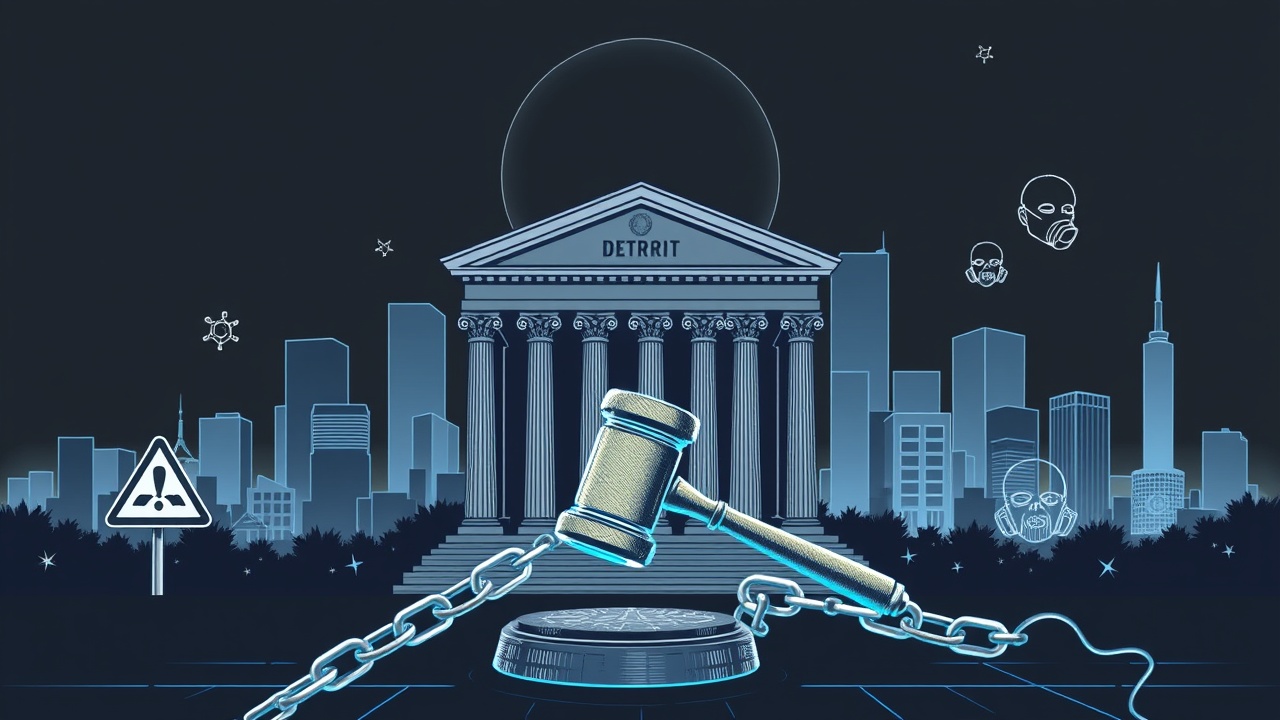Detroit’s Legal Action Against RealToken LLC
The City of Detroit has taken legal action against RealToken LLC, a Florida-based startup specializing in blockchain real estate, filing what officials assert is the most significant nuisance abatement lawsuit in the city’s history. The case, lodged on Tuesday at the Wayne County Circuit Court, includes allegations against the company’s co-founders, Remy and Jean-Marc Jacobson, along with 165 associated corporate entities.
Allegations of Neglect and Poor Living Conditions
In the lawsuit, city officials claim that RealToken has neglected fundamental health and safety standards across approximately 400 properties it oversees, resulting in dire living conditions for tenants.
“These defendants have reaped financial rewards from our neighborhoods while blatantly disregarding their essential responsibilities as landlords,”
stated Conrad Mallett, Detroit’s corporation counsel, in a statement published on the city’s open data portal. Mallett emphasized the distinction between treating communities as investments and acknowledging them as the homes of Detroit’s residents.
Despite RealToken’s commitment to delivering returns of up to 16% to its investors, tenants are reportedly suffering through inadequate housing conditions that do not meet compliance standards. According to the complaint, the platform’s clientele is enduring the repercussions of substandard property maintenance, leading to unsafe and unsanitary living environments devoid of necessary compliance certificates. The lawsuit outlines that several of these deteriorating properties lack fundamental amenities, including heat, running water, and secure access.
Tenant Grievances and Health Risks
Among the grievances highlighted by tenants, one individual has lived without an operational shower for more than two years, while another reported being restricted from her home due to a fallen porch. Inspectors have flagged 53 properties as immediate health risks, marking issues like serious structural damage, mold infestations, sewage backflow, and rodent problems.
City’s Response and Future Actions
In response to these allegations, Detroit is pursuing a mandate from the court to facilitate necessary repairs, implement rent escrow provisions, and hold Remy and Jean-Marc Jacobson accountable personally for their failure to authorize essential repairs through their property management teams.
Moreover, the city’s complaint points to the prevalence of “dangerous structures” within neighborhoods, contributing to an atmosphere that attracts squatters and crime, resulting from RealToken’s management of vacant and dilapidated buildings. At a recent press briefing, Detroit council member Angela Calloway disclosed that RealToken had been “quietly building its portfolio” of properties in the city by offering fractional ownership structured around cryptocurrency.
Fractional Ownership and RealToken’s Business Model
Fractional ownership, as described in RealToken’s promotional materials, involves the tokenization of real estate assets, allowing multiple investors to collectively own shares of single properties. The company asserts that it pioneered this model in 2019 with what it claims was the world’s first real estate tokenization platform on the Ethereum blockchain, although it has since moved its operations to Gnosis Chain, citing Ethereum’s high transaction fees.
Inquiring minds have reached out to RealToken and its legal representatives for further insights regarding the lawsuit.




